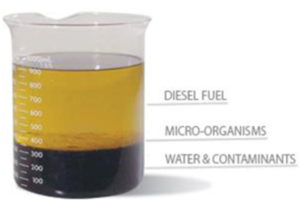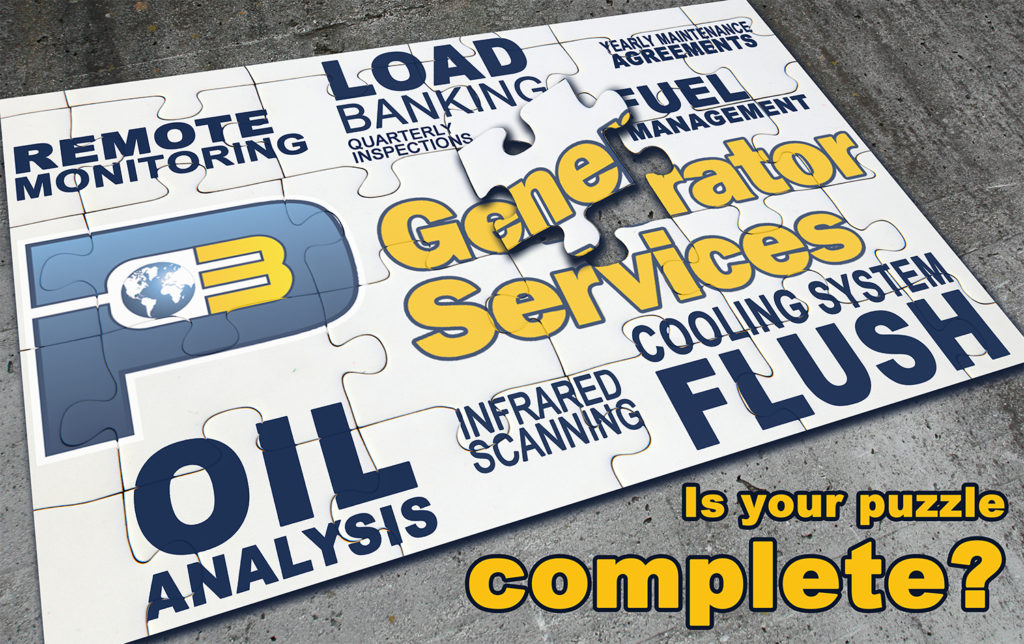When a generator fails to start or is running poorly the first thing people think is that there must be a mechanical issue.
Yet surprisingly, most performance issues can be traced back to bad fuel quality.
Here’s why you should care.
This will be a little chemistry lesson. But don’t fear. There’s no test and we only offer the CliffsNotes version. 
What’s important to understand is that over time fuel loses its ability to function properly. It becomes unstable as it ages and molecular particulates fall out of the fuel at an increasing rate.
And this is how it’s bad for your generator.
Today’s diesel fuels typically have a shelf life of six months* before they begin producing solids, particulates, gums, and varnishes. All of which are primarily hydrocarbons.
* (And that’s six months from when it’s refined, not when it is delivered to you)
These hydrocarbons can be sticky and collect into larger particles as a product of their natural dynamic chemistry.
And where do you suspect these globs of particulate will end up?
Hopefully, the fuel filters catch them. If they do, then filter blockage will surely starve the generator of fuel causing unexpected engine shut down. Changing the fuel filters is only a temporary fix until they become clogged again. Remember the problem is in the tank.
If some particles happen to pass through the filters, then expensive fuel pumps, actuators, and injectors can be negatively affected. Expect huge repair bills and potentially long generator downtimes while waiting for parts. And the problem still exists in the tank.
Let’s face it, addressing a fuel problem before it gets to this point is key.
Performing a stability test can provide revealing information. Some testing parameters may include: 
- Oxidation stability – how the fuel is reacting to outside forces like water, metals, air, and more.
- Thermal stability – the capability of the fuel to withstand high-temperature stress for a reasonable period of time without noticeable deterioration.
- Repolymerization stability – vital for determining how chemically active fuel is on a different level.
Oxidation and thermal stability are well-understood forms of fuel stability and are easily tested. Repolymerization is much less understood by most fuel labs but is a critical element to fuel quality.
A predictive test covering these aspects and more can make the difference between understanding where your fuel is now, and whether it is likely to degrade in 6, 12 or 24 months.
So, how old is the fuel in your storage tank?
Don’t store and ignore it. Understand fuel quality and take preventative action before problems arise.
Get a Fuel Management Quote Today and complete another piece to your maintenance puzzle.



